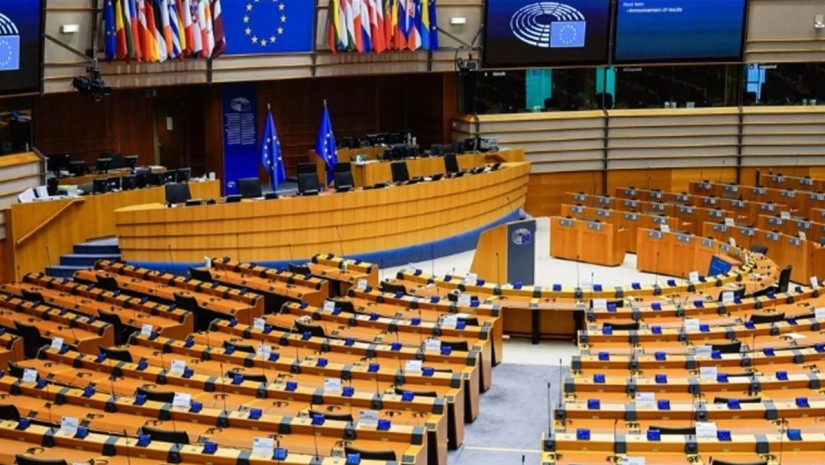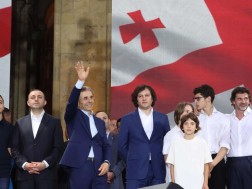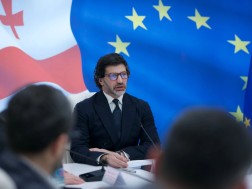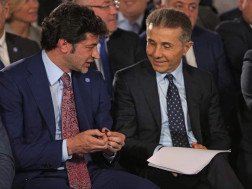European Parliament published a draft resolution on Georgia's worsening democratic crisis following the recent parliamentary elections and alleged electoral fraud, - according to TV company TV Pirveli.
As of the document, MEPS are demanding the sanctions against Bidzina Ivanishvili, Irakli Kobakhidze and Kakha Kaladze. This is the first time that the names of the Prime Minister and the Mayor of Tbilisi have appeared in the blacklist.
The ten-point list, which the European Parliament is to approve next week, also includes demands for new elections and draws attention to the importance of an international investigation.
"We call for a thorough, swift and transparent independent investigation into all reported election-related irregularities and violations," reads one of the draft resolutions.
1. Condemns all violations of international norms for free and fair elections documented during the recent elections in Georgia; call for a thorough, swift and transparent independent investigation into all reported election-related irregularities and violations;
2. Calls on Georgian political forces and civil society to engage in an inclusive dialogue in order to overcome the current political crisis and to proceed with organising new elections under international supervision;
3. Calls on the Georgian authorities to demonstrate their commitment to European values, beginning with full transparency in the electoral process; emphasises that violations of electoral integrity are incompatible with the standards expected from an EU candidate country;
4. Stands in solidarity with the courageous Georgian people fighting for their democratic rights and the European future of their country, and reaffirms its support for their democratic and European aspirations; reiterates its unwavering support to all those who advocate for and defend democracy, human rights, and work for a peaceful society committed to equality and human dignity for all;
5. Urges the Georgian authorities to uphold their commitment to the promotion of democracy, the rule of law and human rights and encourages them to adopt and implement reforms in line with Georgia’s stated objective of joining the European Union, as demanded by a large majority of Georgia’s citizens; appreciates the efforts of Georgia’s President Salome Zourabishvili to steer the country back towards a democratic and European path of development;
6. Reiterates its call on Georgian decision-makers to cease all attacks on civil society, independent media and the LGBTIQ community, and to ensure a genuinly enabling environment for civil society and media in the country; calls for the EU and its Member States to guarantee their full support to Georgian civil society and the independent media in this difficult period;
7. Reiterates its strong condemnation of the adoption of the so-called ‘transparency of foreign influence’ law and the 'family values and protection of minors' legislation by the Georgian Dream majority; calls again for the immediate withdrawal of these pieces of legislation;
8. Call for EU funding provided to the Georgian government to be frozen until the election-related violations are properly addressed and the recently adopted illiberal pieces of legislation are repealed, with strict conditions to be applied to the disbursement of any future funding; reiterates its calls on the Commission to assess the impact of Georgia’s ‘foreign agent’ law and ‘family values legislation‘ on the country’s continuous fulfilment of the visa liberalisation benchmarks, particularly the fundamental rights benchmark, a crucial component of the EU visa liberalisation policy;
9. Calls for the EU and its Member States to impose sanctions on Georgian political leaders and officials responsible for the country’s democratic backsliding and violations of the electoral process; calls, in this context, on the Council to consider imposing personal sanctions on Bidzina Ivanishvili, prime minister Irakli Kobakhidze, and Kakha Kaladze, mayor of Tbilisi and Secretary General of the ruling Georgian Dream party, for their role in the significant deterioration of democracy in Georgia;
10. Condemns Hungarian prime minister Orban’s premature visit to Georgia as yet another attempt to undermine the EU’s common foreign policy;
















